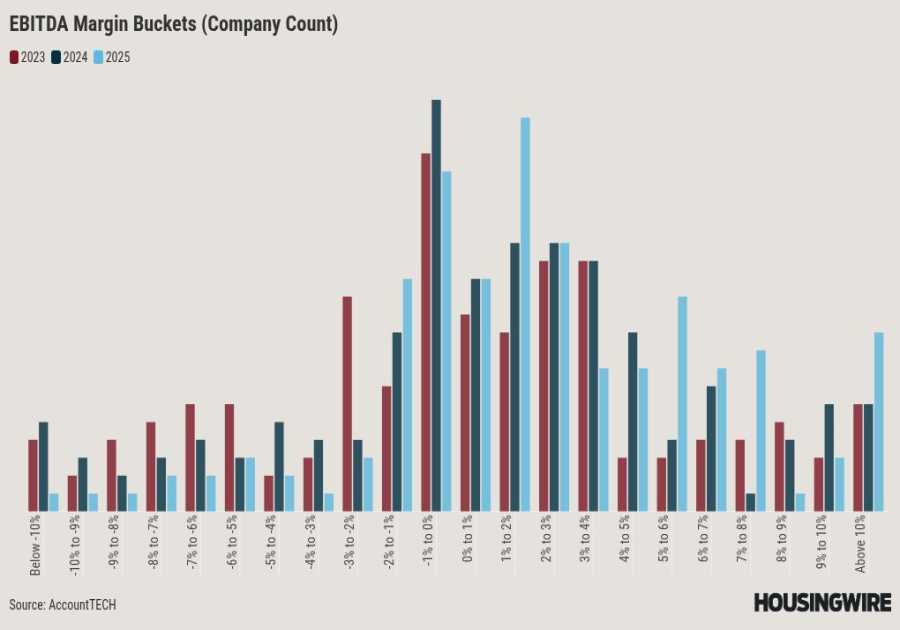Streamline Your Finances with Industry-Specific Virtual Bookkeeping
Industry-specific virtual bookkeeping transforms financial management by tailoring every process to your sector’s unique demands—from cannabis compliance to construction job costing—while cutting costs by 30-50% and freeing up 15+ hours monthly for strategic growth.
As someone who’s built Complete Controller from the ground up, I’ve watched too many businesses struggle with one-size-fits-all bookkeeping that misses critical industry nuances. Here’s what keeps me up at night: 78% of businesses using industry-tailored solutions report 50% fewer compliance errors, yet most entrepreneurs still settle for generic services. This guide reveals exactly how customized virtual bookkeeping solves your sector’s specific financial pain points—and why making the switch could be your smartest business move this year.

What is industry-specific virtual bookkeeping—and why does it matter?
- Industry-specific virtual bookkeeping combines remote financial management with deep sector expertise, compliance knowledge, and customized workflows
- Healthcare practices get HIPAA-compliant billing automation and insurance claim tracking
- Construction companies receive real-time job costing and progress billing integration
- E-commerce businesses benefit from multi-channel inventory sync and sales tax automation across states
- Cannabis operations navigate 280E tax restrictions with a specialized chart of accounts and state reporting
The Foundation: Understanding Industry-Specific Virtual Bookkeeping
Think of generic bookkeeping like wearing someone else’s prescription glasses—sure, you can see something, but you’re missing crucial details. Industry-specific virtual bookkeeping fits your exact vision needs, providing crystal-clear financial insights designed for your sector’s requirements.
The magic happens through three core components:
- Specialized Software Integration: Your bookkeeper connects industry-specific tools (like METRC for cannabis or Procore for construction) directly to your financial system. No more manual data entry or missed transactions.
- Compliance Automation: Built-in workflows automatically handle sector regulations—from restaurant tip reporting to nonprofit grant restrictions. According to recent data, automated bookkeeping reduces errors by 50% through AI-driven reconciliation, catching issues before they become costly problems.
- Custom KPI Tracking: Instead of generic profit-and-loss statements, you get dashboards showing what actually matters: table turnover rates for restaurants, patient acquisition costs for healthcare, or project margins for contractors.
The Tangible Benefits: Cost Savings and Beyond
Smart businesses don’t just save money—they transform their entire financial operations.
Transformative cost efficiency
The numbers speak louder than any sales pitch: businesses save 30-50% on labor costs using virtual bookkeeping versus in-house staff. But that’s just the beginning. Seasonal businesses slash expenses by 60% during slow periods through flexible pricing models. Meanwhile, growing companies avoid the $50,000+ annual cost of hiring, training, and retaining qualified bookkeepers.
Consider this real-world impact: A Florida restaurant group eliminated $36,000 in annual overhead by switching to virtual services, then reinvested those savings into a third location. That’s the power of strategic cost reduction.
Regulatory agility
When tax laws change (and they always do), generic bookkeepers scramble while industry specialists adapt instantly. Cannabis businesses using specialized services stay ahead of evolving state regulations. Healthcare providers maintain HIPAA compliance without lifting a finger. Your virtual team monitors regulatory shifts daily, implementing updates before deadlines hit.
Cash flow optimization
Here’s where industry expertise shines brightest. Construction bookkeepers predict material shortages based on market trends. E-commerce specialists forecast inventory needs using seasonal data from similar businesses. You’re not just tracking money—you’re anticipating challenges before they impact your bottom line.
Industry Spotlights: How Tailored Bookkeeping Transforms Key Sectors
Case study: E-commerce scaling through custom bookkeeping
Background: XYZ Startups, a Florida-based direct-to-consumer brand, struggled with 1,000+ daily transactions across multiple platforms while experiencing 40% monthly growth.
Solution: Implementation of specialized e-commerce bookkeeping with automated Shopify and Amazon integration, plus real-time inventory tracking through A2X software.
Results:
- 50% reduction in bookkeeping costs through automated transaction categorization
- 40% sales increase from profit-per-SKU analysis revealing hidden winners
- $100K tax savings via proper nexus tracking and multi-state compliance
The transformation took just 60 days from initial setup to full optimization. Today, they manage triple the transaction volume with half the financial overhead.
Restaurant finance turnaround
Challenge: A New York restaurant group faced erratic profits despite busy dining rooms, plus mounting tax penalties from manual tip reporting errors.
Tailored Fix: Industry-specific bookkeeping introduced menu-level profit tracking and automated tip compliance through integration with their POS system.
Outcome:25% revenue growth within six months by identifying profitable dishes and eliminating menu items with negative margins. Automated tip reporting eliminated IRS penalties while saving 10 hours weekly on payroll processing.
Construction: Job costing precision
Modern construction demands split-second financial decisions. Specialized bookkeeping tracks labor, materials, and equipment costs per project phase, integrating directly with project management platforms. Contractors using these systems report 35% more accurate bids and 20% higher profit margins through better cost visibility.

Why Industry-Specific Beats Generic Virtual Bookkeeping Every Time
The compliance advantage
Numbers don’t lie: healthcare practices using generic bookkeeping services face HIPAA violations 3× more frequently than those with medical-specific specialists. Why? Generic bookkeepers miss critical details like proper patient payment segregation or insurance reconciliation requirements.
Cannabis businesses face even steeper risks. One missed 280E classification can trigger devastating audits. Industry specialists build compliance into every transaction, protecting your license and your livelihood.
Operational synergy
Manufacturing companies need bill of materials (BOM) costing that generic bookkeepers can’t provide. Nonprofits require fund accounting that tracks donor restrictions. Franchises must separate royalty calculations from operating expenses.
These aren’t just nice-to-have features—they’re operational necessities that generic services consistently botch.
Risk mitigation
Every industry has its financial landmines. Real estate agencies face escrow account violations. Medical practices risk insurance clawbacks. Restaurants navigate complex tip credit calculations. Industry-specific bookkeepers know these dangers intimately, building safeguards into every process.
Your Step-by-Step Roadmap to Industry-Specific Virtual Bookkeeping
Step 1: Audit your current financial pain points
Start by listing your top five financial frustrations. Common industry-specific challenges include:
- Retail: Inventory shrinkage tracking
- Healthcare: Insurance aging reports
- Construction: Work-in-progress calculations
- SaaS: Deferred revenue recognition
- Restaurants: Food cost variance analysis
Rate each pain point’s impact on a 1-10 scale. Anything above 7 demands immediate specialized attention.
Step 2: Vet specialized providers
Your checklist for evaluating providers:
- Industry Experience: Look for 50+ clients in your specific sector
- Software Expertise: Confirm integration with your industry tools (Square for retail, ServiceTitan for HVAC)
- Compliance Credentials: Verify certifications relevant to your field
- Reference Quality: Request three clients in similar revenue ranges
- Response Time: Test their industry knowledge with sector-specific questions
Step 3: Phased implementation
1st Month: System integration and data migration
- Connect industry-specific software (POS, inventory, project management)
- Map your unique chart of accounts
- Establish approval workflows
2nd Month: Process automation
- Set up recurring transactions
- Automate compliance reporting
- Create custom financial dashboards
3rd Month: Optimization and training
- Launch real-time KPI tracking
- Train your team on dashboard access
- Implement monthly strategy calls
The Tech Behind Tailored Bookkeeping: Industry-Specific Software Integrations
Technology adoption among small businesses jumped from 45% in 2022 to 66% in 2025, and industry-specific tools led the charge.
Niche tools for maximum impact
The right integration transforms bookkeeping from data entry to strategic analysis. Top performers by industry:
- Healthcare: Kareo for patient billing, integrated with QuickBooks for seamless revenue tracking
- E-commerce: A2X automates marketplace fee allocation across Amazon, Shopify, and eBay
- Construction: Procore-to-QuickBooks sync enables real-time project profitability
- Restaurants: Toast POS integration provides hourly labor cost analysis
- Cannabis: METRC compliance tracking feeds directly into specialized accounting software
These integrations with cloud-based bookkeeping systems eliminate 73% of manual data entry while providing insights that generic systems can’t match.
Security protocols
Worried about data protection? Industry-specific providers actually enhance security through:
- Sector-Specific Encryption: Healthcare data gets HIPAA-level protection
- Role-Based Access: Construction crews see project costs, not payroll data
- Compliance Audit Trails: Every transaction tracked for regulatory review
- Automated Backups: Industry-standard redundancy prevents data loss
In fact, 90% of businesses report stronger data security with virtual services compared to in-house systems—critical for maintaining trust in regulated industries.
Conclusion: Future-Proof Your Financial Operations
After 15 years pioneering Complete Controller, I’ve seen every bookkeeping solution imaginable. Nothing transforms business performance like industry-specific virtual bookkeeping. It’s not just about saving money (though you’ll save plenty). It’s about gaining the financial clarity and compliance confidence that lets you focus on what you do best—growing your business.
The businesses thriving today aren’t the ones with the biggest budgets. They’re the ones with the clearest financial vision, powered by bookkeeping that speaks their industry’s language. Whether you’re navigating cannabis regulations, optimizing restaurant margins, or scaling e-commerce operations, generic solutions will always hold you back.
Ready to experience bookkeeping designed specifically for your industry? Visit Complete Controller for your free industry gap analysis. Our team specializes in digital bookkeeping for small businesses across 40+ sectors. Let’s build the financial foundation your business deserves.

Frequently Asked Questions About Industry-Specific Virtual Bookkeeping
How quickly can I transition from my current bookkeeping to an industry-specific virtual service?
Most businesses complete the transition in 30-60 days. Simple setups (like retail) take about 30 days, while complex industries (manufacturing, healthcare) may need 60-90 days for full integration. The phased approach ensures zero disruption to daily operations.
What happens if my industry uses proprietary or unusual software?
Industry-specific bookkeepers work with 500+ specialized tools and can create custom integrations for proprietary systems. From METRC for cannabis to specialized CMR for construction, experienced providers have seen it all. They’ll either have existing integrations or build custom connections within weeks.
How do virtual bookkeepers stay current with changing industry regulations?
Specialized providers dedicate team members to regulatory monitoring for each industry they serve. They attend sector-specific training, maintain industry certifications, and often partner with trade associations. This means you get updates implemented automatically—often before your competitors know changes occurred.
Can industry-specific virtual bookkeeping handle multi-state compliance?
Absolutely. In fact, it’s one of their strongest advantages. E-commerce specialists automate sales tax across all states using tools like Avalara. Cannabis experts navigate different state reporting requirements. Healthcare providers manage multi-state licensing. Generic bookkeepers often miss these critical details.
What’s the typical ROI timeline for switching to industry-specific virtual bookkeeping?
Most businesses see positive ROI within 3-4 months through cost savings alone. Add in error reduction, compliance improvements, and better financial insights, and the average client reports 200-300% ROI within the first year. High-compliance industries (healthcare, cannabis) often see even faster returns through avoided penalties.
Sources
- Bench.co. (2025). Franchise Royalty Management. https://www.bench.co/franchise-royalty-management/
- CCMonet. (2025). Top Virtual Bookkeeping Services for Small Businesses in 2025. https://www.ccmonet.ai/blog/top-virtual-bookkeeping-services-for-small-businesses-in-2025
- ClearDesk Blog. (2024). Cost Analysis: Virtual vs. In-House Bookkeeping. https://www.cleardesk.co/blog/cost-analysis/
- Complete Controller. (2025). Cost Savings with Virtual Bookkeeping. https://www.completecontroller.com/cost-savings-with-virtual-bookkeeping/
- DataHorizzon Research. (2025). Accounting Software For Small Businesses Market Size, Growth. https://datahorizzonresearch.com/accounting-software-for-small-businesses-market-40240
- Finley, Mark. The Fino Partners. (2024). E-commerce Bookkeeping Case Study. https://thefinopartners.com/case-studies/
- Mindspace Outsourcing. (2025). Top 5 Mistakes Businesses Make When Choosing Outsourced Bookkeeping Services. https://www.mindspaceoutsourcing.com/top-5-mistakes-businesses-choosing-outsourced-bookkeeping-services/
- Out of the Box Technology. (2025). Manufacturing Inventory Costing. https://outoftheboxtechnology.com/manufacturing-inventory/
- Otterz. (2024). Cut Your Bookkeeping Costs by Up to 50%: The Benefits of Hiring a Virtual Bookkeeper for Your Small Business. https://www.otterz.co/cut-your-bookkeeping-costs-by-up-to-50/
- Profitjets. (2025). Insights on Virtual Bookkeeping Services. https://profitjets.com/blog/virtual-bookkeeping-services-things-to-know/
- Sansar Solutions. (2025). How Automated Bookkeeping Reduces Errors. https://sansarsolutions.com/bookkeeping/pros-and-cons-of-virtual-bookkeeping/
- The Corporate Blawg. (2025). Virtual Bookkeeping vs. In-House: A Cost Comparison in 2025. https://thecorporateblawg.com/virtual-bookkeeping-vs-in-house/
- Thomason CPA. (2023). Cannabis Industry Compliance. https://thomasoncpa.com/cannabis-compliance/
- U.S. Chamber of Commerce. (2024). The Impact of Technology on U.S. Small Business. https://www.uschamber.com/assets/documents/Report-The-Impact-of-Tech-on-US-Small-Business.pdf
 About Complete Controller® – America’s Bookkeeping Experts Complete Controller is the Nation’s Leader in virtual bookkeeping, providing service to businesses and households alike. Utilizing Complete Controller’s technology, clients gain access to a cloud platform where their QuickBooks
About Complete Controller® – America’s Bookkeeping Experts Complete Controller is the Nation’s Leader in virtual bookkeeping, providing service to businesses and households alike. Utilizing Complete Controller’s technology, clients gain access to a cloud platform where their QuickBooks file, critical financial documents, and back-office tools are hosted in an efficient SSO environment. Complete Controller’s team of certified US-based accounting professionals provide bookkeeping, record storage, performance reporting, and controller services including training, cash-flow management, budgeting and forecasting, process and controls advisement, and bill-pay. With flat-rate service plans, Complete Controller is the most cost-effective expert accounting solution for business, family-office, trusts, and households of any size or complexity.
file, critical financial documents, and back-office tools are hosted in an efficient SSO environment. Complete Controller’s team of certified US-based accounting professionals provide bookkeeping, record storage, performance reporting, and controller services including training, cash-flow management, budgeting and forecasting, process and controls advisement, and bill-pay. With flat-rate service plans, Complete Controller is the most cost-effective expert accounting solution for business, family-office, trusts, and households of any size or complexity.
 Reviewed By:
Reviewed By:
Read More
By: Jennifer Brazer
Title: Industry-Specific Virtual Bookkeeping
Sourced From: www.completecontroller.com/industry-specific-virtual-bookkeeping/
Published Date: Mon, 25 Aug 2025 14:00:57 +0000
.png)






